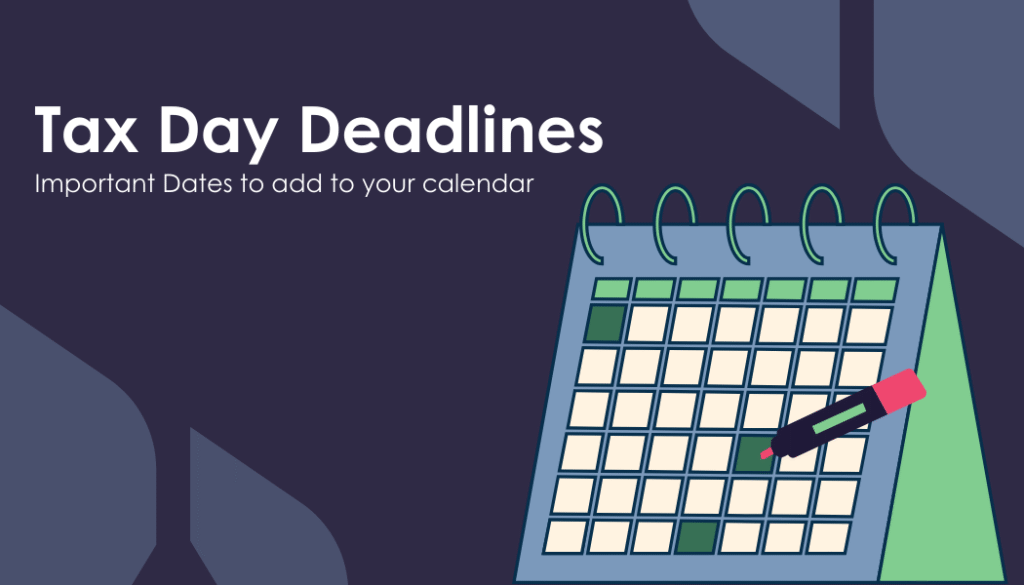
Missing important tax dates not only risks late fees and penalties but can also lead to a last-minute scramble that snowballs into bigger problems down the road. To keep things smooth and stress-free, let’s go over the key tax deadlines and how staying on schedule will save you time, money, and headaches when tax time comes around.
Why Staying on Schedule is Critical
Before we dive into the dates, let’s emphasize why sticking to a tax timeline is crucial. When you leave bookkeeping or tax preparation until the last minute, it can result in a frantic rush to find receipts, reconcile accounts, and fill out forms. This not only increases the chance of errors but also piles on unnecessary stress during an already busy season. By following a tax timeline, you ensure that you:
- Stay organized throughout the year
- Avoid the tax season rush
- Minimize mistakes and overlooked deductions
- Prevent penalties or fines for missing deadlines
- Make tax filing smoother for you or your accountant
Now, let’s look at the important dates to mark on your calendar.
Key Tax Dates to Remember
January 15: Estimated Quarterly Tax Payment #4
If you’re self-employed or run a small business, you likely pay estimated quarterly taxes. The fourth and final payment for the previous tax year is due on January 15. Missing this payment can result in penalties, so it’s a critical first step in wrapping up the year.
January 31: 1099-NEC and W-2 Filing Deadline
Employers must file 1099-NEC forms for independent contractors and W-2 forms for employees by January 31. If you hire freelancers or contractors for your business, don’t let this date slip! Sending these forms out late could result in penalties.
March 15: S-Corporation and Partnership Tax Returns
For those who own an S-Corporation or partnership, your business tax return is due by March 15. This is an important deadline because it impacts the personal tax returns of the business owners. Staying ahead of this date ensures you can finalize your business return and avoid rushing.
April 15: Personal Tax Returns and C-Corporation Tax Returns
April 15 is the big deadline that most people know, but it’s important to plan well in advance. This is when individual income tax returns (Form 1040) are due, as well as C-Corporation tax returns. If you’re self-employed or a sole proprietor, this is when your Schedule C must be filed alongside your personal return. Missing this date can lead to hefty late fees and interest charges.
June 15: Estimated Quarterly Tax Payment #2
For self-employed individuals or small businesses, the second estimated tax payment is due on June 15. It’s easy to forget about quarterly taxes once you’re past April 15, but missing any payment will result in penalties. Be proactive and schedule your payment ahead of time.
September 15: Estimated Quarterly Tax Payment #3 & Extended S-Corp/Partnership Returns
If you filed for an extension for your S-Corp or partnership taxes back in March, this is your final deadline to submit your return. September 15 is also when the third quarterly estimated tax payment is due for the year.
October 15: Extended Personal Tax Return Deadline
If you requested an extension on your personal tax return back in April, October 15 is the last day to submit it. Don’t wait until the last minute to finalize your paperwork, or you may find yourself in a time crunch once again.
December 31: Year-End Planning and Final Preparations
The end of the year is your last chance to complete tax-deductible purchases, contributions, or other activities that can impact your next tax return. Use this time to review your finances and make any final adjustments before closing out the year.
Stay on Track with Regular Bookkeeping
Now that you know the key tax dates, it’s essential to stay on top of your bookkeeping throughout the year. By maintaining up-to-date financial records, you make tax filing much easier. Here’s how to stay organized:
- Set monthly financial reviews: Review your income and expenses at least once a month to ensure everything is recorded and up to date.
- Track deductible expenses: Stay diligent about tracking and categorizing deductible business expenses so nothing is missed at year-end.
- Work with a bookkeeper: If managing your finances feels overwhelming, hire a bookkeeper to handle the day-to-day recordkeeping and keep everything in order.
- Plan for quarterly taxes: Make sure to calculate and set aside funds for your estimated quarterly taxes so they don’t sneak up on you.
Don’t Let Your Tax Obligations Snowball
Taxes don’t have to be a last-minute frenzy if you stay on top of your deadlines throughout the year. Mark your calendar, keep your bookkeeping up to date, and tackle each task as it comes. By doing so, you’ll avoid the stress and penalties that come with scrambling at the last minute.
Not ready to do it on your own?
The QuickBooks Guy offers not just bookkeeping services but also a partnership in your financial journey. With a deep understanding of QuickBooks and a commitment to personalized service, The QuickBooks Guy is your ally in navigating the complexities of financial management. By choosing us, you ensure that your business’s financial health is in capable hands, allowing you to focus on growing your business.
Don’t let bookkeeping challenges hold you back any longer. Reach out today at 678-923-5904 or drop an email to TheQuickBooksGuy@gmail.com.




